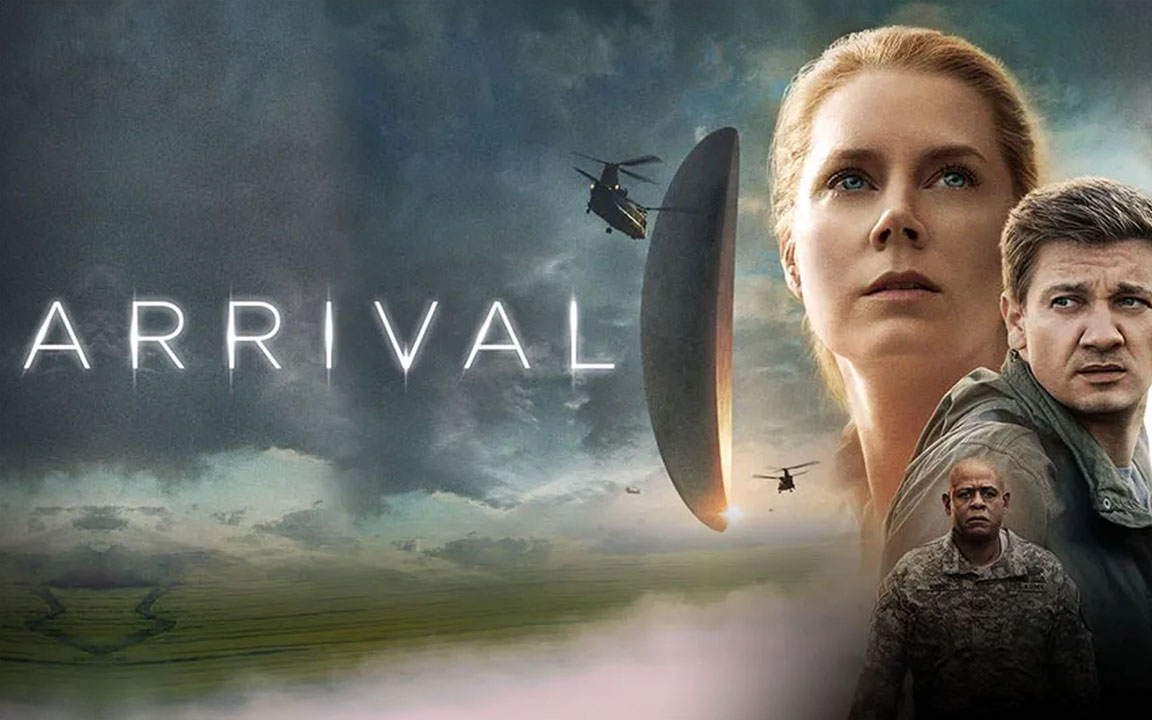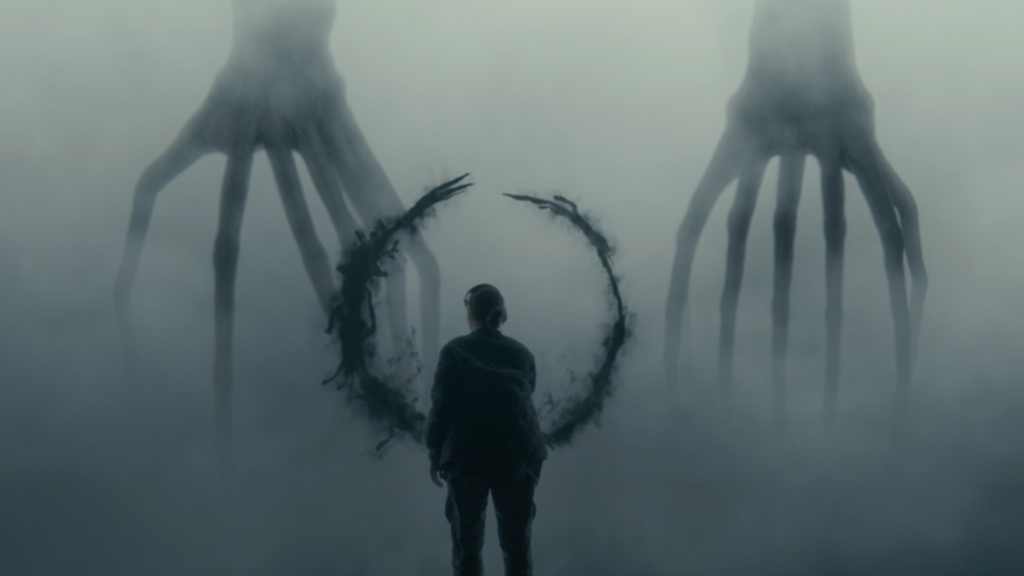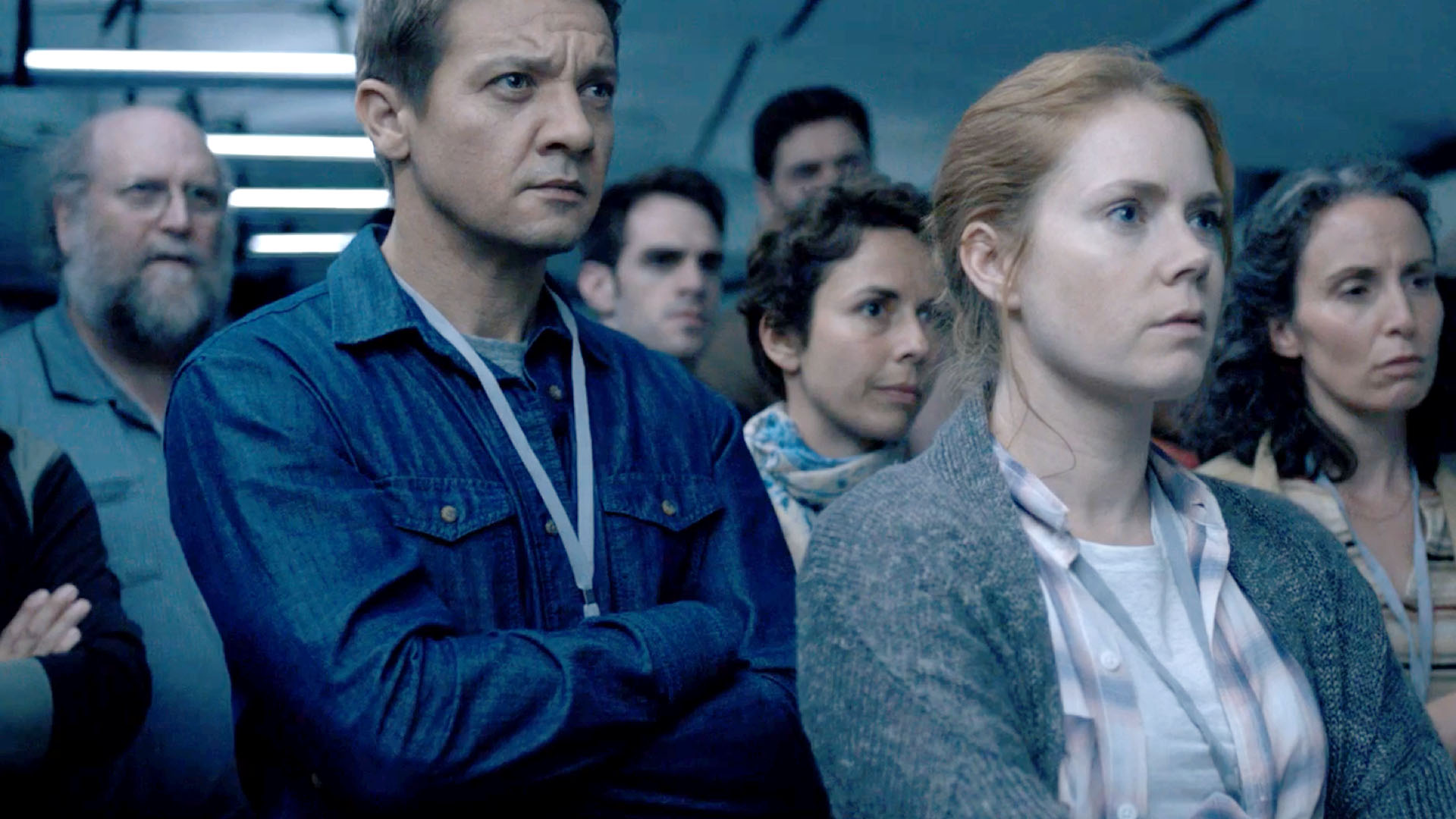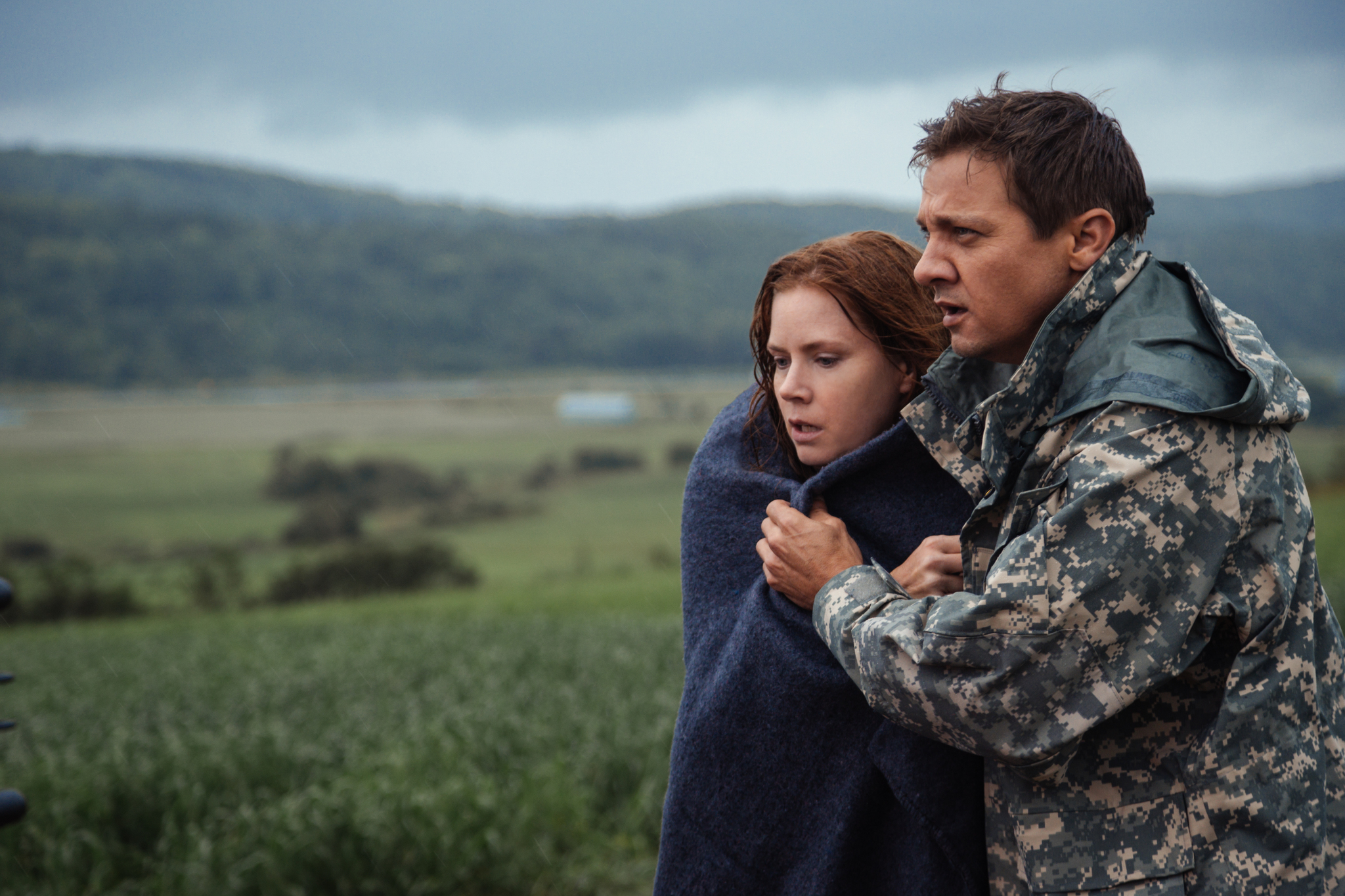Arrival (2016)

Review of Arrival (2016)
Arrival (2016), directed by Denis Villeneuve and based on Ted Chiang’s short story Story of Your Life, is a mesmerizing science fiction film that challenges our conventional understanding of language, time, and communication. This film transcends the usual genre conventions of alien encounters and instead focuses on the emotional, intellectual, and philosophical questions raised by the arrival of extraterrestrial life on Earth. With a hauntingly beautiful narrative, an exceptional cast, and stunning cinematography, Arrival offers a thought-provoking cinematic experience that lingers long after the credits roll.
At its core, Arrival is a story about language and how it shapes not only our understanding of the world but also our perception of time itself. Through the lens of a first contact scenario, the film explores themes of determinism, free will, and the complexities of human communication. While its pacing may be slower and its structure nonlinear, the film’s intricate storytelling and philosophical depth make it one of the most unique and intellectually stimulating sci-fi films of the decade.
Plot: The Arrival of the Heptapods
The film opens with the sudden arrival of twelve enormous alien spacecraft, which land at various locations across the globe. As humanity grapples with this unprecedented event, the world’s governments are left scrambling to establish contact and understand the extraterrestrial visitors. Dr. Louise Banks (played by Amy Adams), a linguistics professor, is recruited by the U.S. military to help decode the aliens’ language, as she is one of the few individuals with the expertise to decipher complex, unspoken communication.
The aliens, known as “Heptapods,” are strange, multi-limbed creatures with an advanced form of language that appears to defy the basic principles of human communication. Unlike anything the humans have encountered before, the Heptapods’ language seems to be circular in nature, with no clear distinctions between past, present, or future. Dr. Banks works alongside theoretical physicist Ian Donnelly (played by Jeremy Renner) and military officer Colonel Weber (played by Forest Whitaker) to unravel the mystery of the Heptapods’ language, all while tensions rise between nations who fear the extraterrestrials may be a threat.
As Louise begins to immerse herself in learning the Heptapod language, she experiences a series of increasingly surreal visions and flashbacks — or perhaps glimpses into the future — of her personal life, particularly her relationship with her daughter. These visions, which appear disconnected from the present events, gradually reveal themselves as a key component of the film’s deeper thematic concerns. Through her work with the aliens and her personal journey, Louise’s perception of time itself begins to change in profound and unexpected ways.
Language, Time, and the Structure of the Film
Arrival stands apart from many other science fiction films by exploring the theme of language not just as a tool for communication but as a lens through which we experience the world. The film’s central concept is the idea that language is intrinsically tied to our perception of time. As Louise learns the Heptapods’ language, she begins to perceive time as fluid and non-linear — a concept that challenges the very way humans understand their lives and choices.
The Heptapods’ written language is depicted as intricate circular symbols, which convey entire concepts without the need for a linear sequence of words or sentences. As Louise starts to interpret these symbols, she begins to experience time in a way that is disconnected from human notions of past, present, and future. This unique perspective allows her to see events and memories not as isolated moments but as interconnected and continuous, regardless of when they “happen” chronologically.
This manipulation of time is not only a narrative device but also a profound philosophical inquiry. The film asks whether knowing the future is a gift or a curse, and whether our understanding of events can affect our decisions. It questions the boundaries between determinism and free will, suggesting that our perception of time may limit or expand the choices we make in life.
The structure of the film itself mirrors the fluidity of time. The narrative is non-linear, with sequences of Louise’s personal life interwoven with the primary plot of the alien encounter. As Louise’s understanding of the Heptapod language deepens, the audience begins to realize that these seemingly disconnected flashbacks and future visions are intricately linked to the main storyline. This narrative structure reinforces the film’s theme that time is not linear and that the past, present, and future are all interconnected.
Amy Adams’ Performance: A Masterclass in Subtlety
Amy Adams delivers a truly remarkable performance as Dr. Louise Banks. Throughout the film, she must convey the emotional weight of the character’s personal journey while also navigating the intellectual complexity of the linguistic puzzle at hand. Adams brings a quiet strength and vulnerability to the role, and her portrayal of Louise’s internal struggle — as she comes to terms with her past and her future — anchors the film’s emotional depth.
Louise is a character driven by intellect and emotion, and Adams beautifully captures the tension between these two forces. As she learns to communicate with the Heptapods and experiences flashes of her own life, Adams masterfully conveys the emotional complexity of a woman coming to terms with loss, love, and fate. Her ability to convey deep emotion without resorting to overt displays of sentiment makes her performance one of the highlights of the film.
The film’s emotional core rests on the relationship between Louise and her daughter, a connection that is both heart-wrenching and deeply moving. As Louise begins to understand the true nature of her experiences with the Heptapods, she must reconcile the painful knowledge of what is to come — and whether it is worth living through the inevitable pain. The themes of love and loss are beautifully explored through Adams’ sensitive and nuanced performance.
Denis Villeneuve’s Direction: A Master of Atmosphere
Denis Villeneuve, known for his work on films like Prisoners (2013) and Blade Runner 2049 (2017), brings a delicate balance of intellectual depth and emotional resonance to Arrival. Villeneuve’s direction is methodical and precise, creating a slow-burn narrative that gradually builds to an emotional and philosophical climax. His use of atmosphere is one of the film’s greatest strengths, with the sterile, almost clinical environment of the military facility contrasting with the vast emptiness of the surrounding desert landscape. The sense of isolation and tension between the human characters and the alien visitors is palpable throughout the film.
The cinematography by Bradford Young (who also worked on Selma and Solo: A Star Wars Story) is striking. The wide shots of the alien ship hovering above the desert or the mysterious, foreboding environment inside the spacecraft create a sense of awe and mystery. Young’s use of light and shadow further enhances the film’s tone of uncertainty and wonder. The visual effects, especially the design of the Heptapods and their language, are elegant and thought-provoking, enhancing the film’s themes of communication and perception.
Johann Johannsson’s Score: Haunting and Beautiful
The film’s score, composed by Johann Johannsson, complements the haunting atmosphere with a minimalist, ethereal soundscape. The music is subtle and often understated, allowing the emotional weight of the story to resonate without overshadowing the narrative. The score evokes a sense of wonder, melancholy, and reflection, reinforcing the film’s exploration of time, memory, and human connection. The music is especially powerful in moments of realization, when Louise’s understanding of the Heptapod language changes the way she sees the world.
Thematic Depth: Love, Loss, and the Nature of Time
At its heart, Arrival is a meditation on the nature of time and how our understanding of it shapes our lives. The film raises important questions about determinism, free will, and the inevitability of pain and loss. It explores whether it is possible to live with the knowledge of future events and still embrace life with the same depth of meaning and love. Can we truly change the future, or are we simply following a preordained path?
The relationship between Louise and her daughter is central to this exploration. As Louise begins to see the future more clearly, she is forced to reconcile her love for her daughter with the knowledge of the pain that is to come. This emotional core makes the film not just an intellectual exercise but also a deeply moving story about the human experience. The film asks whether knowing the future — with all its joys and sorrows — can lead to a more meaningful existence, or whether it is better to embrace uncertainty and the unknown.

Conclusion: A Profound and Thought-Provoking Film
Arrival is a masterfully crafted science fiction film that challenges our perceptions of time, language, and existence. With its intelligent narrative, stunning visuals, and emotional depth, it is a film that resonates on both an intellectual and emotional level. Villeneuve’s direction, Amy Adams’ powerful performance, and the film’s philosophical themes make it a standout in the genre, offering a fresh and contemplative approach to the idea of first contact with extraterrestrial life.
Arrival is not just a story about aliens — it’s a story about humanity, love, loss, and the complex nature of our relationship with time. It is a film that lingers long after viewing, provoking deep reflection on the choices we make and the way we perceive the world. Thought-provoking, beautiful, and emotionally resonant, Arrival is a science fiction masterpiece that will continue to captivate and inspire for years to come.











